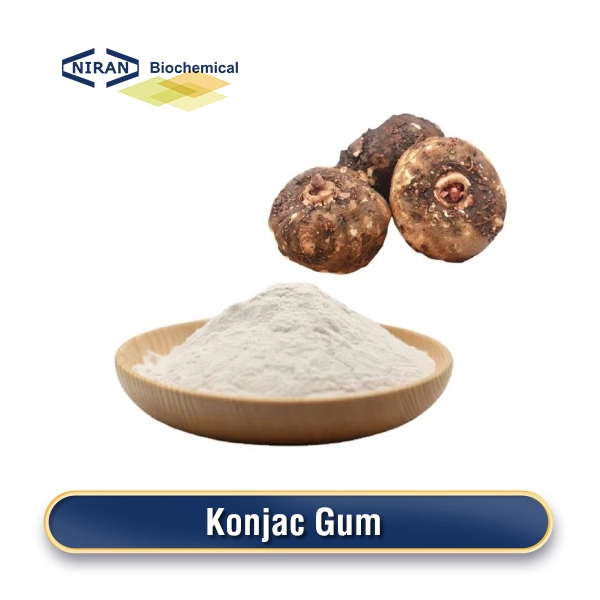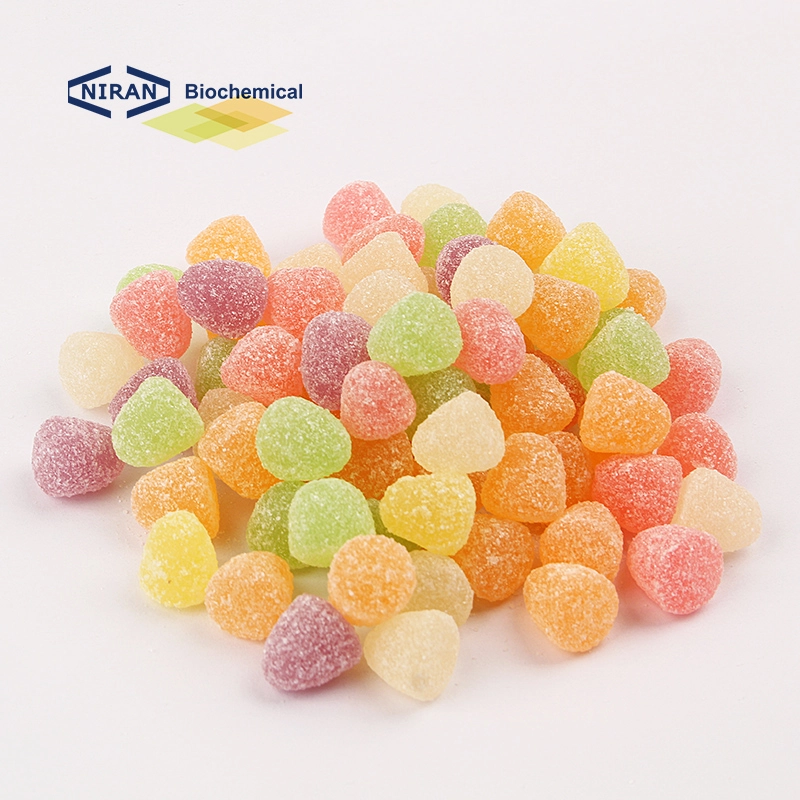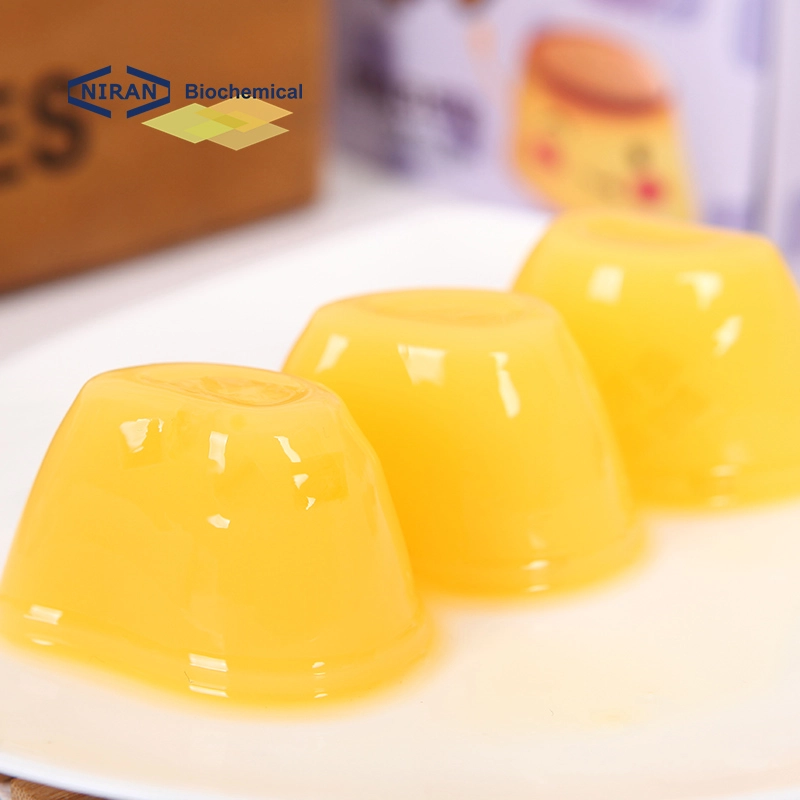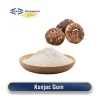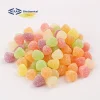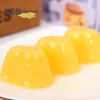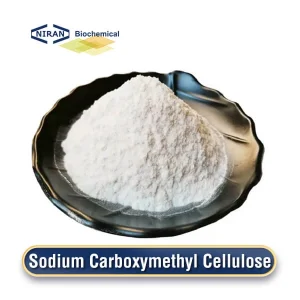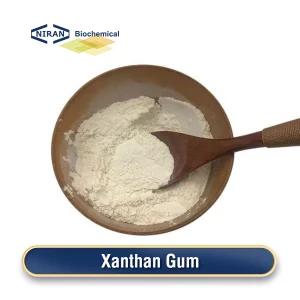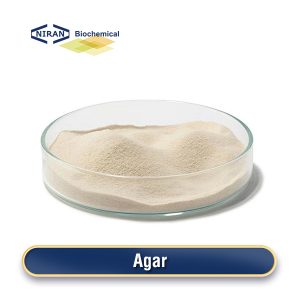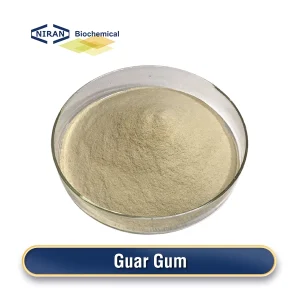What is Konjac Gum?
Konjac gum is a highly soluble, neutral plant polysaccharide with a white or cream to light brown powder appearance. It is basically odorless and tasteless. It is a low-calorie, low-protein, high-dietary fiber food that plays an important role not only in the food industry, but also in agriculture, medicine, and other industries.
The preparation process of konjac gum includes selecting the konjac root, washing and peeling it, cutting and crushing it, extracting the dietary fiber solution and filtering and purifying it, and finally concentrating and drying it into a powder or block product. This process ensures that konjac gum maintains its high fiber content and stable quality, making it suitable for use as a food additive.
Related parameters:
| ITEMS | SPECIFICATION |
| Analytical quality: | |
| Moisture | ≤ 12 % |
| Viscosity (1% aq. solution, 60°C) | ≥ 32,000 mPa.s |
| pH (1% solution) | 4 – 7 |
| Ash content | ≤ 3 % |
| Starch | ≤ 3 % |
| Proteins | ≤ 3 % |
| Ether soluble matters | ≤ 0.1 % |
| Sulfite (SO2) | ≤ 10 ppm* |
| Konjac Glucomannan | ≥ 95 % |
| Microbiology: | |
| Total Plate Count | < 100 cfu/g |
| Yeast and Moulds | < 100 cfu/g |
| Clostridia | absent in 1g |
| E. Coli | absent in 5g |
| Enterobacteriacae | absent in 10g |
| Salmonella | absent in 10g |
| S. aureus | absence |
| Contaminants: | |
| Aflatoxin B1 | 0.3 ppb |
| Aflatoxin B2 | 0.2 ppb |
| Aflatoxin G1 | 0.3 ppb |
| Aflatoxin G2 | 0.2 ppb |
| Heavy metals: | |
| Lead | ≤ 2 ppm |
| Cadmium | ≤ 1 ppm |
| Mercury | ≤ 0.1 ppm |
| Arsenic | ≤ 2 ppm |
Recommended dosage:
| Food name | Maximum usage(g/kg) |
| Yogurt and dairy products | 3-5 g/kg |
| Ice cream and ice cream | 5-8 g/kg |
| Sauces and condiments | 3-6 g/kg |
| Biscuits and cakes | 5-10 g/kg |
| Seasoned meat products | 5-8 g/kg |
| Beverages and juices | 3-5 g/kg |
| Canned food | 3-6 g/kg |
| Biscuits and crispy snacks | 5-8 g/kg |
| Instant noodles and instant noodles | 3-6 g/kg |
| Seasoned salad dressing | 3-6 g/kg |
| Cheese products | 3-5 g/kg |
| Braised food and meat products | 5-8 g/kg |
| Lactic acid beverages and enzyme beverages | 3-5 g/kg |
Konjac gum has a wide range of uses
1. Thickener and gelling agent: Konjac gum has good thickening and gel-forming ability, so it is often used to make gel and semi-gel products in various foods, such as jelly, pudding, solidified drinks, etc.
2. Emulsifier stabilizer: Konjac gum can effectively enhance the emulsification stability in food, especially for improving the stability of emulsified products such as cream, salad dressing, sauce, etc.
3. Enhance taste and texture: Adding konjac gum to ice cream, yogurt, juice drinks, etc. can improve the taste, increase the oral feel and taste texture of food.
4. Dietary fiber supplement: As a natural water-soluble dietary fiber, konjac gum can increase the fiber content of food, help promote digestive health and regulate blood sugar levels.
5. Replacement of low-calorie and low-fat products: In low-calorie, low-fat food products, konjac gum can be used as an alternative ingredient to help maintain the taste and texture of food.
6. Humectant and preservative: Konjac gum has good water retention and preservative properties, and can be used to maintain the moisture of food and extend its shelf life.
User asked question:
Q: Are xanthan gum and konjac gum fundamentally different from one another?
A: Konjac gum and xanthan gum differ significantly in their essential properties. Konjac gum is a glucan extracted from the root of the konjac plant, which is mainly used in the food industry and health products to enhance satiety and improve digestion.
Xanthan gum is a polysaccharide produced by the fermentation of xanthophyll fungi, which has excellent thickening, emulsification and stability, and is widely used in food, medicine and cosmetics to improve the texture and stability of the product.


